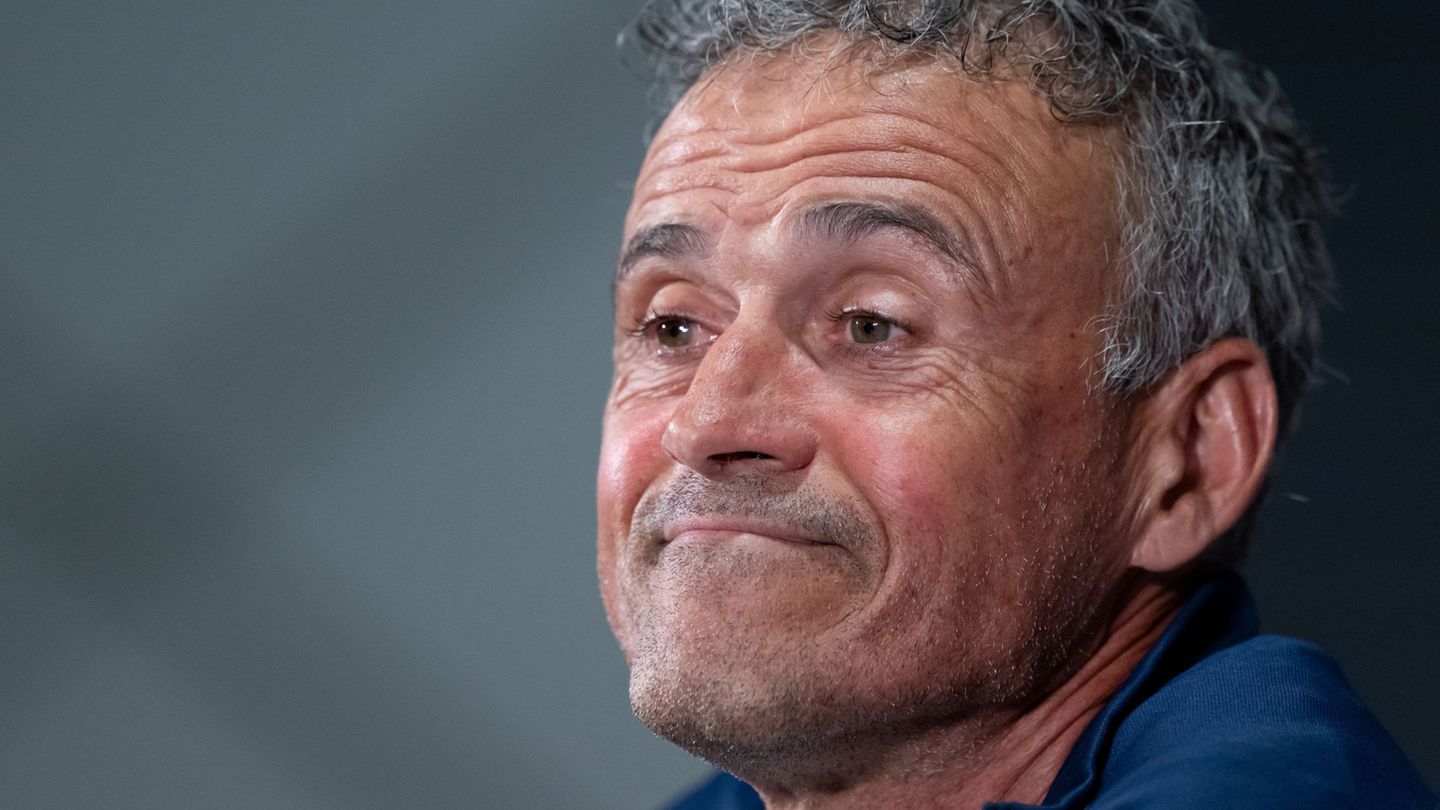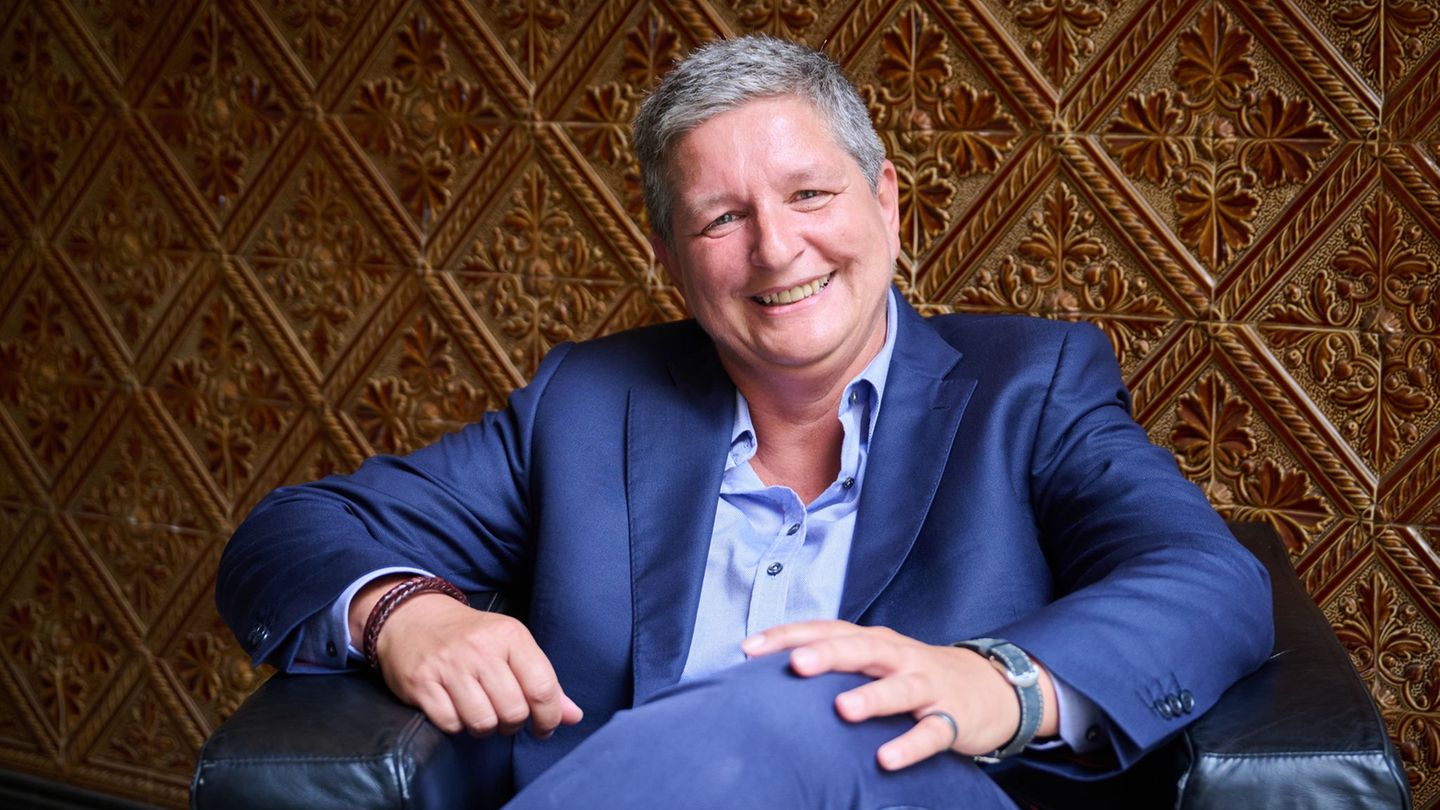Bärbel Schäfer explains why the new “emergency call” format is important to her. She also talks about her talk show time and the Raab comeback.
Bärbel Schäfer (60) will be presenting the documentary series “Notruf” from April 22nd (Monday to Friday at 6 p.m. on Sat.1 and on Joyn). Emergency doctors and paramedics will have their say and report on difficult and emotional missions or spectacular rescues.
In an interview with the news agency spot on news, Bärbel Schäfer explains why she is returning to TV for this topic of all things and what distinguishes the show from the format of the same name, which ran on competitor RTL between 1992 and 2006 and was written by Hans Meiser (1946-2023). was moderated. The presenter also looks back on her talk show past and reveals what she thinks of Stefan Raab’s (57) announced comeback.
You said in a statement that you wanted the format to above all value the use of rescue workers. To what extent is this done in the show?
Bärbel Schäfer: The emergency paramedics have their say. It is their cases that we depict, recreate and film. I am a third of the show and do the on and off moderation. I’m no longer on site, I no longer have to abseil from a helicopter like Hans Meiser used to do. Therefore, the program will have the same title as its predecessor, but the focus will be on the cases of the paramedics and emergency doctors who particularly moved them.
How was filming for you?
Schäfer: For me it was a bit like coming home. I definitely still feel comfortable in front of the camera and everything is familiar. In this case it was a bit like actors filming their scenes with other actors at different times. I was in my studio, recording my presentations and the others were filming. It was highly logistical to have everyone there at a specific time. This was only possible with a company like Filmpool, which manages such daily projects, or with someone like me who has daily experience and has no problem pre-producing several programs a day.
What impression do you have of the paramedic profession?
Schäfer: It’s an exceptional job. I think we all know the pressure they are under. They don’t just do weekend or night shifts, work on public holidays or at events such as marathons, carnivals or New Year’s Eve. A lot of abuse also happens; people simply call 911 because their partner may have a cold. There are attacks or rescue routes are blocked. That’s why our show was particularly important to me, because we can perhaps make a contribution to drawing attention to the problems. It was also the reason why, after so many years, I wanted to say again: “I’m going to stand in front of the camera for this project.” A lot of things are coming back, Stefan Raab, hoodies from the 90s and now me too (laughs).
Have you had personal experience with rescue workers?
Schäfer: It is well known that my brother and my partner at the time died in an accident. I later found out with my brother that emergency doctors tried to save his life. Unfortunately it was too late. But the fact that people try it and that this system works in our country, that we call this number and within five to seven minutes a car with all the equipment is there, is not something that can be taken for granted everywhere. It is very important to state this clearly. So when I’m stuck in traffic because of a closure due to an accident, I’m probably one of the few who doesn’t get upset because I know what you’re fighting for – the life of a loved one. Like in my family, there are many who have to continue living without their relatives afterwards. And in many cases, emergency doctors did their best and provided first aid. That’s why we want to focus on them as real heroes in the show.
And what was it like for you to succeed Hans Meister?
Schäfer: Back then, I hardly followed the show, which was very successful for the station, and I didn’t really have much connection to it. I stood in the studio all day and didn’t see any daylight (laughs). There are now a few years between the formats, so I don’t see it as a direct successor. There was a change of channel, the title was available and the channel took it over.
What connection did you have with your colleague?
Schäfer: He was my boss for three years before I started my own business. He was of course someone who helped set up RTL and laid the first tracks in Luxembourg. Private television changed the media landscape; we had very courageous directors who developed new formats. We were all able to try out an incredible amount and had a large media playground. We rehearsed in the afternoon and if it went well, maybe it would run in the evening.
Will you have any further TV projects or will you stay behind the camera?
Schäfer: Now we’re starting on the 22nd. And depending on whether it’s successful, there might be more. Of course, the competition today has grown on television and with the Internet and social media. But I believe this can work. I believe that the true stories we tell, real lives, continue to touch us all. I am an author, radio journalist and host two podcasts. So I’ve been combining several things for a long time and television is currently one of them again.
Your talk show started in 1995, so the 30th anniversary is coming soon. Were there any thoughts about bringing the show back?
Schäfer: It was a great time, but I think it’s like a great party you were at once and you think you can have it again a few years later in the same kitchen with the same people. That used to be simply the momentum, that was new, that was the look under German roofs. There were high emotions and a wide variety of topics from politics, school grades, to family, sex or haircuts. For spectators and for us as a team it was like a crazy school trip of a lifetime. I don’t think this should be repeated again. And so it remains a memory of an intensive, instructive and successful time. Many of the team that was tight-knit back then are still in contact, and some have now taken part in “Notruf” again. It’s nice that people in our industry often see each other again.
The talk shows of the 90s were very rowdy. How do you look back on it today?
Schäfer: Of course we were loud, direct and sometimes uninhibited. We were Daily Talk. We looked each other in the eyes, laughed afterwards, continued to discuss things and even had a drink together after the show. We didn’t shoot anonymously from cover. Everyone going into the show knew that it could be emotional. Liveliness was part of it, that’s what life is all about. But there was also a lot of reconciliation and we laughed incredibly hard.
You have already mentioned him: What do you say about the return of Stefan Raab?
Schäfer: He is an absolute media professional and wrote the theme song for my Daily Show. So there is a connection there. Like everyone else, I look at it with curiosity. With Stefan Raab you have to be prepared for anything. I would be happy, he was a great asset. His formats such as “Schlag den Star” have been successful in the long term and continue to shape TV today. He will probably attack again at the ESC, as has been reported. Things can’t get any worse for us as we’re constantly at the bottom and with Raab we’ve always been more successful.
Source: Stern
I am an author and journalist who has worked in the entertainment industry for over a decade. I currently work as a news editor at a major news website, and my focus is on covering the latest trends in entertainment. I also write occasional pieces for other outlets, and have authored two books about the entertainment industry.




